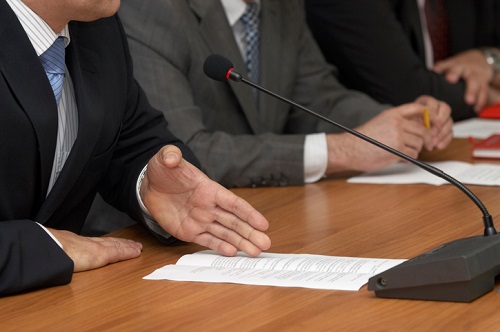
The Federal Government has announced sweeping new rules to protect universities from foreign interference.
The move, announced on Thursday, follows growing concerns about China's influence in Australia and a 2018 cyberattack on the Australian National University (ANU) which involved the stealing of names, addresses, passport details, tax file numbers and a host of other sensitive information.
Under the Guidelines to Counter Foreign Interference in the Australian University Sector, universities must name all research projects and financial dealings with foreign donors and countries.
The guidelines set out five key themes “backed by concrete actions” that cover governance and risk frameworks, due diligence, communication and education, knowledge sharing; and cyber security.
Federal Education Minister Dan Tehan said the guidelines were developed with universities to ensure they had the policies, frameworks and strategies in place to protect against foreign interference while maintaining their autonomy.
"The Morrison Government is working with universities to ensure they have the necessary protections for students, research data, and academic integrity," Tehan said.
"Working with universities and national security agencies, we have taken action to ensure universities understand the risks and know what steps to take to protect themselves."
Intelligence agencies leading efforts
Minister for Home Affairs Peter Dutton said Australia’s security agencies are leading efforts to respond to foreign interference and to protect the nation’s university sector.
"The Director-General of ASIO says foreign interference against Australia’s interests is at an unprecedented level that includes universities and the research sector," Mr Dutton said.
Vice-Chancellor of the University of Wollongong (UOW), Professor Paul Wellings, who produced the recent performance review for the government, said the new guidelines “preserve institutional autonomy and protect Australia’s higher education sector while enabling our universities to continue collaborating in world-leading research”.
“UOW is equally committed to protecting Australia’s national interests in our conduct of research and in our engagement with international partners,” Professor Wellings said.
RMIT Vice Chancellor and President Martin Bean CBE, one of the co-chairs, said he was delighted to see the shared commitment of universities and the Government to safeguard the security of Australia’s university sector without undermining the invaluable asset of its openness.
"The guidelines are a fantastic new resource for universities to add to their existing tools and to assist decision makers in continuing to assess the evolving risks from foreign interference," he said.
‘A genuinely equal partnership’
Universities Australia Chair Professor Deborah Terry AO said the nation’s university leaders commended the process and noted the university sector’s strong commitment throughout.
"This has genuinely been an equal partnership between universities and Government,” Terry said.
Terry added that the shared aim is “to build on existing protections against foreign interference, without damaging the openness and global engagement that are essential to Australia’s success.”
"The intent is not to add to the regulatory or compliance burden for universities, nor to contravene university autonomy – but to enhance resources and intelligence to further safeguard our people, research and technology,” she said.


